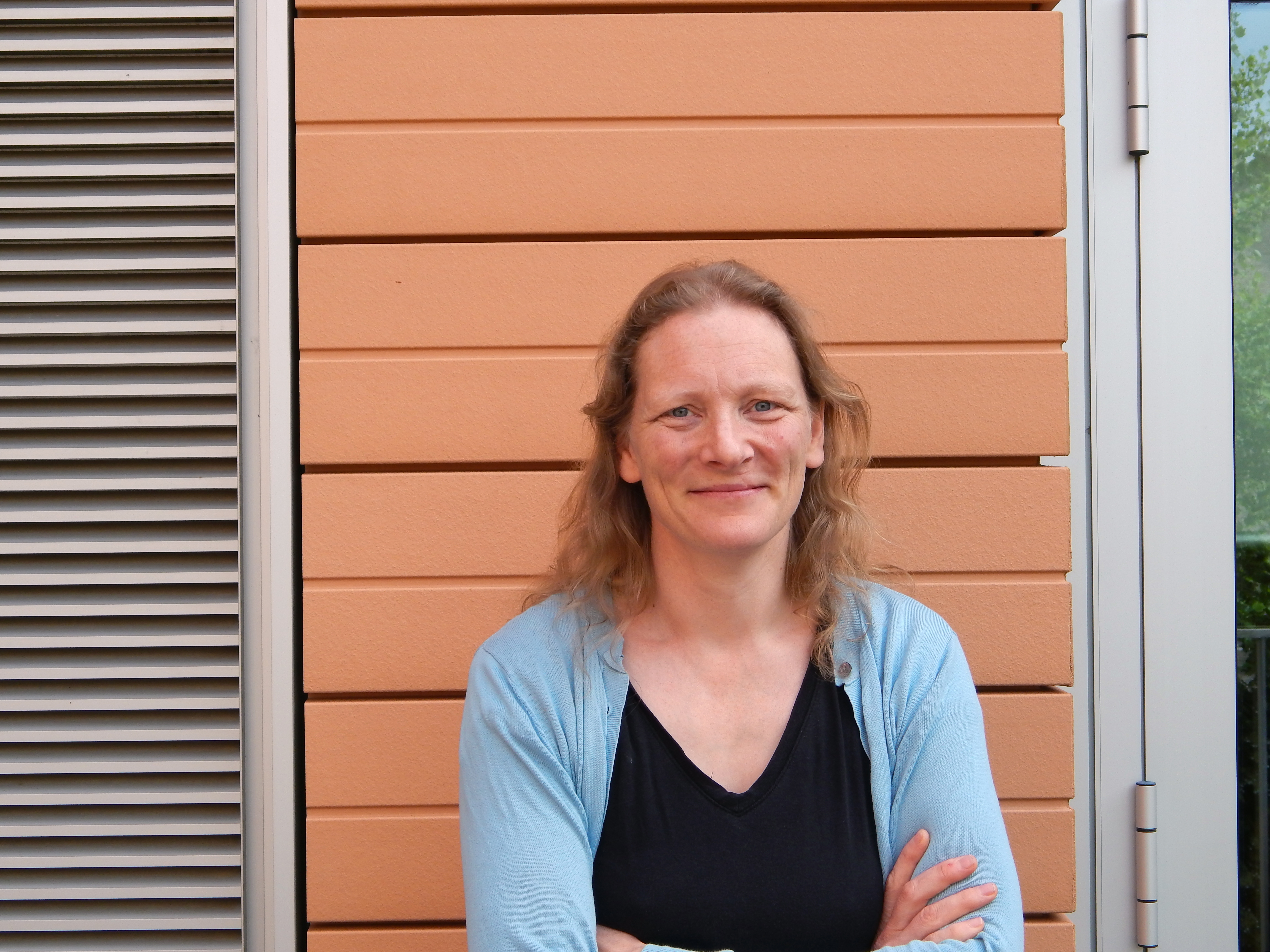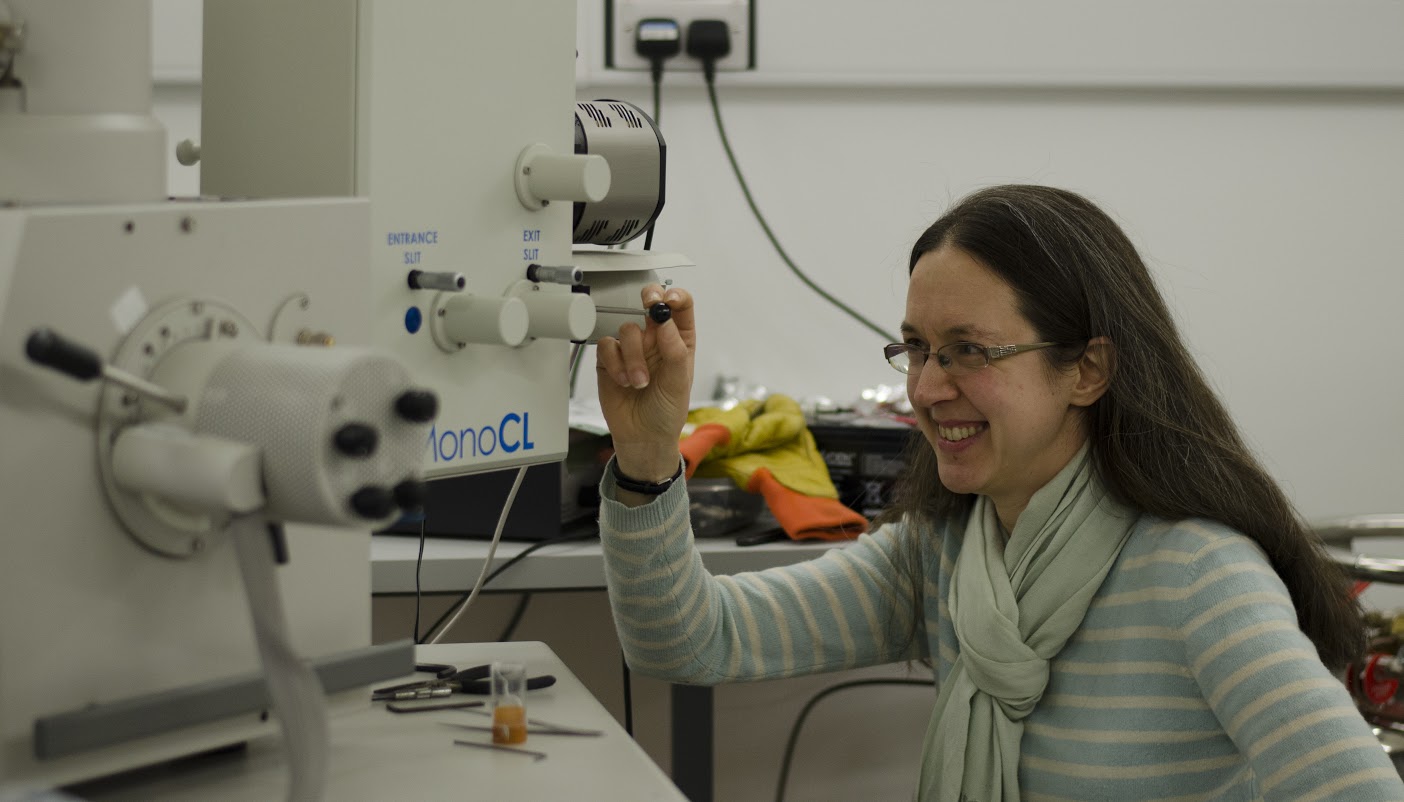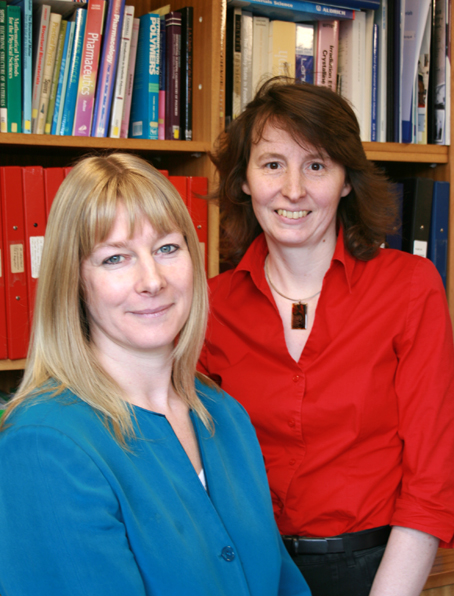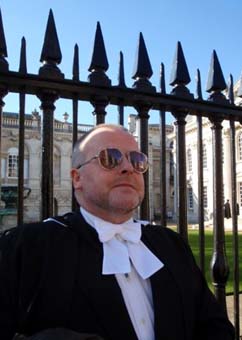Case studies
These flexible working case studies highlight how flexible working can be achieved within the University and the advantages of a healthy life-work balance. Reasons for working flexibly can vary, and specific working patterns can adapt to personal and departmental circumstances.
The case studies demonstrate the tremendous positive impact that flexible working has on the personal and working lives of the participants, whether it was to combine work with family commitments, sport, health related issues or other professional activities.
| Alison | Amy | Anonymous 1 | Anonymous 2 | Charles | Diane |
| Howard | Jo | John | Laura | Rachel H | Rachel O |
| Rebecca | Ruth & Serena | Sally | Simon | Steve | Susan |
| Suzanne | Vanessa | Zarah | Anonymous 3 |
 |
AlisonSenior Secretary, Rolls-Royce UTC and Gordon Laboratory, Department of Material Sciences and Metallurgy Working Pattern: 83%, including working from home and flexibility around set hours ► When Alison joined the Rolls-Royce UTC in 2010 it was on a part-time basis, working 17 hours a week. At that time she still had her own recruitment business alongside, which she gradually closed down due to the changes in the recruitment market and financial reasons. Over the past six years she steadily increased her hours to 33 hours per week. She started off working only the occasional day from home, but now her hours include two days of working from home. Although her flexible working arrangement has set start and end hours, she can work very flexibly due to the nature of her work and the people she is working with. Originally, she was employed to take care of the financial side of the research group and some administrative tasks, managing an ever increasing number of grants with a total budget of over £25 million. However, her responsibilities have now spread to other areas, for example she is organising multiple conferences for the UTC and creating and sending out Christmas cards every year. Basically, she can take on any project that her line managers ask her to do. She says, “You have to give flexibility in order to earn flexibility.” The freedom in her hours enables Alison to be a single mother to her daughter and to visit with her elderly mother every week. Read full profile here |
 |
Amy MorrisLecturer in American literature, Faculty of English Working pattern: Complicated ► Amy’s research interests lie within the English and American literature of the early modern period and she teaches early American writing with a particular focus on poetry. Her current family situation is quite unique: her husband has an academic position in the USA and together they have 4 children. Since the birth of her first child in 2005, she has taken a total of 5 years of leave, before in September 2008, she returned on a very flexible, part-time basis. While she would work full-time from January to August, the whole family would move to Cambridge. For the remainder of the year, the family then relocated to the USA. The reception of the changes in her working pattern was largely positive: she received major support from colleagues, the Faculty administrator and HR to find the optimal solution. The adjustments when returning to work part-time were difficult but Amy found out that she was able to adapt quickly and that her skills could be revived easily. Her return to full-time work in 2014 complicated the transatlantic living and working arrangements. However, Amy and her family are motivated to find a permanent solution that can work for everybody. Altogether, working part-time has enabled her to spend more time with her family, which has given her an entirely new set of skills and has even motivated some of her research! After professional advancement had been put on hold for a while, she has recently been encouraged to apply for a promotion to Senior Lecturer. Read the full profile here |
Anonymous 1School of Humanities and Social Sciences Working pattern: 50% FTE including working from home. ► Just before he began his fellowship at Cambridge, this member of staff found out that one of his parents, who lives in another country, had been diagnosed with a progressive form of dementia that also involved a gradually increasing paralysis. Although, he could not take up the role of the primary carer due to the distance, the circumstances made him reflect on his current situation in life and what he wanted to achieve. As he approached the end of his first year of the fellowship, he realized that there would be a variety of benefits if he reduced his hours to half-time and worked from home. Apart from the flexibility to return to his native country on short notice, it provided him with additional time to solve some complicated puzzles related to his research and also enabled him to develop a role in a helping profession outside of academia. Since the second year of his fellowship, he has been working 50% FTE. Most days he works from home, but comes into the department regularly for meetings and seminars, especially during term time. Fortunately, he was able to extend his funding and will therefore stay two years longer than originally expected. Although his department and sponsor were very supportive of his change in working arrangement, he thinks that his switching to part-time might impact negatively on his academic career. However, at the same time, he is now also able to imagine a career that progresses beyond the strictures of academia. Read the full profile here |
|
Anonymous 2Faculty of Philosophy ► Sometimes a small change in working hours can make a big change on someone’s family life and personal well-being. About 13 years ago, before the current flexible working policy was in place, an employee of the Faculty of Philosophy needed some time to take care of their mother, who had become quite ill and elderly. At the time, the member of staff was working full-time and asked for two weeks of unpaid leave to be granted on an annual basis. The reduction in salary was spread over the whole year, resulting in approximately 96% of full-time salary every month. It was arranged that the leave was taken outside of the University terms, which suited the faculty. This working arrangement continued even after the staff member’s mother had died, until they retired some years ago. This is a very simple example of how departments can accommodate a couple of practical changes without significant loss in productivity. It was in the faculty’s interests, as a department which is able to accommodate flexibility often has better staff-retention and happier staff altogether. If the department had not been able to accommodate this particular member of staff, they would have been forced to search for jobs that offered more flexibility. |
|
Charles JonesEmeritus Reader, Department of Politics and International Relations (POLIS) Working pattern: Half-time, then per Diem basis for certain responsibilities in the department ► Originally, Charles and his wife, Linda, wanted to retire simultaneously. Although they both formally retired at about the same time, they found themselves involved with more work than they expected. During a meeting in 2013, Charles and the other members of the Department’s executive committee discussed the future of the Department. It was at that time, that Charles suggested his formal semi-retirement. His Head of Department was understandably surprised but very happy to accommodate Charles in his desire to continue with certain functions in the Department on a half-time basis. Charles kept his teaching responsibilities for the part-time Master’s degree and the MPhil on International Studies, as well as his liaison role between the POLIS and the armed forces. He also completed his term as the director of the Centre of Latin American Studies. In 2015, he then reduced his work commitments to a per-diem basis. Both Charles and his wife will continue to engage with their former responsibilities in some fashion, while at the same time discovering the possibilities that develop outside of work, now that they have more time. Read the full profile here |
|
Diane FosterDeputy Administrator and Principal Assistant Working pattern: working from home, part-time with lots of flexibility for emergencies ► Diane has been working for the University for 30 years and has been employed by the Gurdon Institute for 25 of those years. A few years ago, Diane very suddenly found herself with caring responsibilities for her 15 year old daughter who developed mental health difficulties. At the beginning Diane took a prolonged period of sick leave to stay home. During that time, the rest of the administrative team took on as much of her essential duties as they could. After about 8 months, Diane started to work from home for 6 weeks in 2008 before returning part-time. Little details like having a parking spot at the department and being paid over-time allowed her to adapt to the circumstances. Diane worked mornings only at first, before increasing her hours gradually until a good balance was reached. In 2012, Diane was able to return to working full-time. Looking back, she says that the whole family was under a massive amount of strain and that they actually managed very well to cope. The situation made her realize how much her job contributes to her self-esteem and purpose. She says, “If I had given up, I probably would not be as happy and as well as I am now.” Read the full profile here |
|
 |
Howard StoneUniversity Lecturer, Department of Material Sciences and Metallurgy Working pattern: FT, earlier start and finish on Mondays, Wednesdays and every 4th Friday ► As a dad of four who wants to spend a considerable amount of time with his children, Howard has adapted his working pattern to suit childcare arrangements. Whilst he still works full-time, he is starting and leaving early a few times a week to pick up his children from school and nursery and to spend the afternoon with them. This pattern suits him very well, since his work gets done while he is still able to have a better, closer relationship with his children. Its reception within the department was rather matter-of-fact and has not resulted in any particular disadvantages for him or his colleagues. During very busy weeks he can manage by being more forward planning and knowing how much he is actually able to take on. Based on experiences prior to becoming a Lecturer at the DMSM, he leads his group with the motto that productivity is more important than presenteeism, e.g. by encouraging his PhD students to work in places they can work best, even if that is not the office. Read the full profile here |
 |
Jo ParkesFinance Report Analyst, Finance Division Working pattern: adjusted full-time hours ► Jo studied Chemistry at Durham and trained as an accountant afterwards. Prior to joining the Finance Division at Cambridge, she worked both as an accountant and as a project manager for the Defra and the Green Chemistry Centre of Excellence at the University of York. At all times she was able to keep a horse and spend time training and competing in Showjumping and Dressage up to a national level because her employments were under a flexi-time agreement. Those who have grown up with horses and have been riding for some time know how much reward there is in being an equestrian. Yet, horse work demands time, which means it is challenging to combine with full-time employment and long commutes. Jo starts working at 8am and finished at 4pm most days. Since her horse is in part-livery she goes to the stables about an hour away every evening for mucking out, feeding and to work her horse. One advantage of these slightly shifted times is that she misses the worst of the traffic both here and at home. She wished she did not have that long a drive to the stables but it was rather difficult to find a livery yard that was not too expensive, where they could take care of the horse in the mornings, provided winter turnout and most importantly which had a floodlit arena – a crucial element for training in winter. Although her life’s passion is for horses, she is quite realistic and acknowledges that the costs of supporting a horse and competing nationally will always necessitate a financially stable job. Therefore, it will always require some effort to combine her roles in finance and as an equestrian. Read the full profile here |
John HardingHead of the Disability Resource Centre Working pattern: adjusted full-time hours ► The Disability Resource Centre is a small, but very busy front-line student service. John has been working in his current position for the past 8 years, and has had a flexible working arrangement for nearly 6 years of that. He works full-time but with most of his hours spread over the second half of the week, such that he is able to do the runs to school on Mondays and Tuesdays. He also promotes flexibility in his team, quite a few of whom are part-timers with children themselves. Just recently he supported one of his male advisers in their application for flexible working and was positively surprised about how much the bureaucracy had eased up. John would like to see more men applying for flexible working arrangements to reduce persisting stereotypes and negative connotations associated with it. He thinks that a focus on productivity and ensuring a healthy work-life balance will be appreciated by most people. Especially considering the expenses today it is often necessary that both partners with children are able to work. Read the full profile here |
|
Laura ItzhakiReader, Department of Pharmacology Working pattern: Full-time, including flexible hours and working from home ► As the head of her research group, Laura is kept busy with papers and grant applications, administrative duties, undergraduate teaching responsibilities and supervision of around 10 graduate students and post-docs. Laura coordinates her work arrangements with her family commitments. Having two children and being an academic is already quite challenging. Having a child with special needs can be an entirely different matter. During the most difficult times, before her younger son was able to attend nursery, Laura was glad to have a live-in carer to help look after him. Throughout her career she had to make arrangements for flexible working. These days, she often works a few hours in the morning from home, then comes in to the Department and leaves usually about 4pm to spend the rest of the day with her children. If meetings are likely to run late, she has a childminder who comes to receive her younger son as he arrives back from school. One of the things Laura misses most about a “normal day” is being able to take the time for chatting to people at tea time and after departmental talks in a more social environment. Laura has also experienced that the career progression of women with children tends to be slower than for women without. However, in a department with a very supportive working environment it is not impossible, and since her appointment in Pharmacology Laura has been promoted to Reader. Read the full profile here |
|
Rachel HobsonResearch and Business Development Manager, Department of Material Sciences and Metallurgy Working pattern: ½ day a week, short-term ► Rachel works part-time to accommodate her family commitments. A while ago her son became very ill and required one parent to be on call all the time. Initially, Rachel handed in her notice as she knew that she had to focus on her son’s health. Fortunately, the Departmental Administrator persuaded her to stay after discussing the flexible working policy with her. For 8 months she reduced her hours to a half day per week to be able to care for her son, but also to stay in touch with work at the same time. When her son got better and could return to school, she requested to work for 2 days a week. However, since her son was settling back in well, she could soon increase her hours to the original 3 days per week. For the department it was important to retain her knowledge and experience, and her colleagues were very welcoming and supportive of her unusual working arrangement. |
|
 |
Rachel OliverReader, Department of Material Sciences and Metallurgy Working pattern: 90% FTE ► In academia it often seems difficult, if not impossible, to lead a research group on a part-time basis. Rachel, however, is the perfect counter example. She has been leading her research group for a few years on a Royal Society Fellowship before she was fortunate to secure a University Lectureship. Her ability to combine childcare with her position as a group leader and lecturer was based on three crucial factors: the flexibility of the Head of Department and childcare, having about 6 different back up plans for childcare, and the willingness to be flexible herself. After her son was born in 2010, Rachel took 18 weeks of maternity leave. While continuing to breastfeed she returned to work on a 50% basis for 9 months under the graduated return from maternity leave scheme. Then, she commenced her lecturing duties and changed to 80% which allowed her one day off a week. Her childcare arrangements were very flexible which allowed her to take the day off whenever it was best for work. These days, Rachel is working 90%. Although most weeks her hours add up to full-time, the part-time agreement secures her the flexibility she needs to look after her son. It also helps her to limit additional teaching and administrative tasks. Rachel has been promoted to Reader in 2013 and is currently a Leverhulme Trust Senior Research Fellow. Read the full profile here |
Rebecca DarlowFinance Trainer, Finance Division Working Pattern: adjusted FT hours, and one day working from home ► Rebecca’s first job after finishing her A-levels was with Lloyds TSB. For some time she was working in the private banking sector and later on she started training Lloyds employees on a regional level. As her work involved a lot of travelling, she looked for other employment and subsequently became a trainer for the University Finance Division. The change came with its own challenges because every department appeared to be its own small business. Rebecca and her husband first adjusted their working hours when their son started nursery. At the initial stages, her mother was able to take up a lot of the caring responsibilities. Last year, Rebecca applied for a formal arrangement for flexible working because her son was to start school. She is now working from home on Mondays to be able to do the runs to school without too much of a commute. On Fridays, Rebecca starts later so that she is able to drop her son at school and her husband, who doesn’t work with the University, works flexible hours as he collects their son at the end of the normal school day. The rest of the week, when most of her training courses are scheduled, her son goes to breakfast and after-school club. These days she does not have the urge to climb up the career ladder. Some colleagues are amazed that she is happy to “plod along”, but it is what she wants at the moment. Once her son is older and more independent she will most likely change her mind because she always needs a challenge. Read the full profile here |
|
 |
Ruth Cameron and Serena BestProfessors of Material Sciences, Department of Material Sciences and Metallurgy Working Pattern: 80% FTE, job-share ► Ruth and Serena, joint group leaders of the Cambridge Centre for Medical Materials at the Department of Materials Science and Metallurgy, have been working part-time for long periods of their research careers to accommodate family commitments. The exact details of their arrangements have changed over the years to adapt to external circumstances. At present, Ruth works her hours over 5 days while Serena is in the Department for 4 days per week. On an everyday basis they share most of their responsibilities. Some projects are particularly closely linked with one or the other, but generally they are involved in projects together. Their unique arrangement allows them to work together and, if necessary, for one to make a decision on behalf of both of them. “Working as a pair can help you to take braver decisions”, Ruth says. In a team one can support each other and be altogether more effective. They have recently been awarded a joint Fellowship by the EPSRC in recognition, by the wider scientific community, of their collaborative working arrangements. The Department has always been very supportive of their working arrangements. Both were Lecturers when they originally reduced their hours and they have since been able to progress to Professorships without problems. Every two or three years, Ruth and Serena renew their flexible working arrangements. Each time they re-evaluate their circumstances and decide what is best for all involved. Read the full profile here |
Sally ThomsonAdministrative assistant, Faculty of Music Working pattern: term-time, reduced hours ► Initially, Sally was sent to Music by the Temporary Employment Service of the University to cover for a secretary who had fallen ill. Fortunately, the Faculty was able to retain her after her short-term contract ended. Since then her duties have changed a lot. Apart from the normal secretary’s jobs, she now draws up the course guides for undergraduate teaching every year, manages the termly timetables and takes care of the payment of teaching staff. When her daughter was born Sally had been working with the Civil Service. After her maternity leave she decided to leave on early voluntary redundancy, because she wanted a job with more flexibility. The short hours and term-time arrangement with Music suits Sally very well as she can drop off her daughter at school and pick her up in the early afternoon. Most of the University vacations coincide with her daughter’s school holidays and during half-term her partner or her mother take over childcare. Sally really appreciates the opportunities Music has given her in terms of flexibility. Although they had an established flexible working policy in the Civil Service, she thinks that she would not have had the same freedom primarily due to how the work was organised. At the moment, Sally enjoys that she can leave the office once the work is done without having to worry about it at home. Her line manager is aware of that, but also appreciates that there will come a time when Sally would like to work full-time again. Read the full profile here |
|
 |
Simon BeardPost-doctoral Research Associate, Centre for the Study of Existential Risk Working pattern: Flexi-hours, 2 days from home ► After spending a few years in politics working for different think-tanks, charities and even the House of Lords, Simon returned to academia to do a PhD in Moral Philosophy at the London School of Economics. Subsequently, he did a short post-doc at Oxford before coming to Cambridge to work for the CSER on global threats and population ethics. Already in the interview for his current position he made clear that he would like to work from home some days to accommodate his caring responsibilities. Both Simon and his wife have disabilities: he is visually impaired and his wife suffers from chronic fatigue syndrome. When he is working from home, he does a lot of writing and other tasks that are difficult to do in a noisy office. At the same time, he can do a lot to support his wife and children throughout the day. When he is away, they rely on his parents who live close by to provide help with childcare and in the household. At the beginning of every week, Simon talks to his group leader to make plans for the up-coming days and to arrange the relevant meetings. His working-from-home days can differ from week to week depending on what is going on. Sometimes, he cannot attend spontaneous meetings or the random trip to the pub. “Working flexibly is not cost-less”, he says. Having the flexible working agreement with his group allowed the whole family to stay where they are, as it would have taken a considerable amount of time, effort and finances to move to Cambridge, get settled and arrange for childcare. But by the time his youngest child goes to school this unique working arrangement might come to an end naturally. Read the full profile here |
 |
Steve KimberleyComputer Officer, Faculty of Classics Working pattern: 10.30am – 6.30pm, weekends and holidays if necessary ► In cases when we cannot connect to the internet, or when we face IT troubles we do not know how to solve, there is usually one go-to person in every department that will try and fix it. In the Faculty of Classics, this is Steve. He is responsible for IT and any related services, which includes for example maintenance of networks and servers, development of future improvements and providing advice to members of staff. Due to the nature of his work he can and often must work flexibly. The IT systems do not require constant supervision, but any maintenance has to be done outside of normal working hours. This is better carried out in the evenings to provide Steve with enough time in case there are problems. Most staff appreciate that he is still around in the evenings should they require assistance with equipment for e.g. evening seminars. If anybody has IT related troubles they can also reach him on his faculty mobile phone at any reasonable hour. For Steve the flexibility offered by his job is an important factor for the quality of his life and his job satisfaction. He is very happy in his current position and hopes to continue his job until his retirement. Read the full profile here |
Susan GowansResearch Grant Coordinator, CRASSH Working pattern: FT, one day from home ► The CRASSH administrative offices are a fantastic environment to work in. “The administrator is incredibly realistic about life”, Susan says. In the case of an emergency, time can be made up at a later point.” Everyone of the support staff has this flexibility, not only those with children. Susan joined the CRASSH administrative team as research project administrator nearly one and a half years ago. Before that, she worked within the insurance sector in New Zealand and in an administrative role for ARU. Originally, she was employed by CRASSH for 60%, but soon she was asked to temporarily take on some responsibilities for the Centre for the Study of Existential Risk (CSER) which enabled her to increase to 80%. A few months ago, she has increased to full-time, working one day from home. This arrangement allows her to drop off and collect her daughter from school one day a week as well as saving her two hours of commuting time. Currently she coordinates two research projects as well as assisting with the setting up of the new Leverhulme Centre for Future of Intelligence. The two research projects involve the usual finance and event management. She also goes to the reading groups for one of these projects, which she enjoys tremendously. Although she comes from a very different background, she has been able to learn much and is getting involved in discussions more often these days. Since she has been working at the University she has been able to observe and interact with people who have many different careers. To her, these people and the Cambridge environment are an inspiration. She has joined the Springboard Women’s Development Programme and also considers pursuing a part-time Master’s degree in Philosophy. Read the full profile here |
|
Suzanne CampbellResearch grant and HR manager, Gurdon Institute Working pattern: reduced hours and remote working (short-term) ► Although Suzanne does not have to care for her mother on a daily basis, she had to provide care after multiple operations. The original plan was for Suzanne to take to periods when she would reduce her hours and work remotely. This was to take care of her mother before and after she had two knee replacement surgeries. However, as her mother went to the hospital for her first operation, the doctors discovered that she needed heart surgery before any other operation could be attempted. The knee surgery was cancelled and she had to return to Aberdeen three more times for periods of one to two months of flexible working that year and the year after. The first was to accommodate her mother’s heart surgery, the third and fourth were for the respective knee surgeries. During her absences Suzanne worked different hours, usually within 10 – 50 % of full-time. She was also provided with a laptop that was set up for remote access. It was easy for her to keep in touch with everything that went on in her absence because she checked her emails daily and communicated regularly with the Institute’s administrator and the rest of her team. This way it was also not very difficult to re-adjust once she was back on full-time. Suzanne is very grateful to her administrator and her team who made it all possible. Without the option of working flexibly, Suzanne would have had to resign. Read the full profile here |
|
 |
Vanessa BlakeComputer Officer, Department of Chemical Engineering and Biotechnology Working pattern: 0.8 FTE; flexi time ► As a result of working with computers for 30 years, Vanessa has ongoing shoulder pains which at one point even caused her shoulder to freeze up completely. Additionally, she had some caring responsibilities for her mother which added to her stress. Therefore, at the beginning of 2012, Vanessa applied to her department to work part-time and to progressively reduce hours in the years approaching her retirement. She and the department agreed on her reducing to 80%. She intended to use her free time to attend classes, get more exercise and to volunteer. She commenced her part-time hours in September 2012. Three months later she was diagnosed with breast cancer. The majority of the following year she spent on sick leave to attend her treatments, a combination of operations, chemotherapy and radiotherapy. Vanessa returned to work in the October that year, though she continued to have regular treatments until April 2014. Fortunately, she was allowed a staged return to work and could gradually build up her hours until she got back to 80%. At the point she was glad that she had already reduced her hours. “I still get more tired than I used to and it’s helpful to not have to work full time”, she says. Although the “cancer has rather overshadowed everything in the past few years”, Vanessa’s flexible working arrangement has contributed significantly to her health and happiness by providing a good work-life balance. Read the full profile here |
 |
Zarah AbdullahiSenior Research Nurse, MRC Cancer Unit Working pattern: 28hr contract ► The job of a Senior Research Nurse comes with its own perks and difficulties. Although the salary is on a clinical scale and therefore gives more financial security than other research positions, Zarah’s responsibilities involve a lot of direct patient contact. On paper Zarah’s working hours are described as 9.30am to 5.30pm, four days a week. However, due to the nature of the work she can only leave once patients are finished with their tests and treatments. “Leaving at 6pm is a privilege”, she says. Zarah employed a childminder who picked up her daughter from nursery, and later from school. If required the childminder could keep her daughter until later in the evening. Her older son also helped out and picked up his sister from the childminder’s most days. At the moment, Zarah is happy with her working arrangements. The one day off every week provides her with time for herself from, away from the busy job. On these days she can do the ever present housework which frees up weekends, e.g. to volunteer in the Islamic school in her community. For some time Zarah used her days off to obtain another MSc degree in Clinical Research and one of her future goals is to earn a PhD to be able to teach. Read the full profile here |
Anonymous 3Technician Working pattern: 80% and up to three weeks of unpaid annual leave per year Before this member of staff started in her current position in a life sciences research lab over 10 years ago she was working in industry, leading her own research group. She took up the appointment as Technician, because it was advertised as family-friendly and because she was able to choose to work 80%, 5 days a week. Now that her children are in their late teens and are a lot more independent, she often finds herself working a bit longer. Due to the nature of her work, which is based on cell culture studies, she sometimes comes in during weekends or evenings anyway. Every year, she takes up to 3 weeks of unpaid leave to go to Brussels and work for the European Commission, reviewing applications for different programmes within Horizon 2020. She enjoys the variety of her job which is composed of lab management, supervision of students, and science outreach in addition to her research project and her responsibilities for the European Commission. |
|
